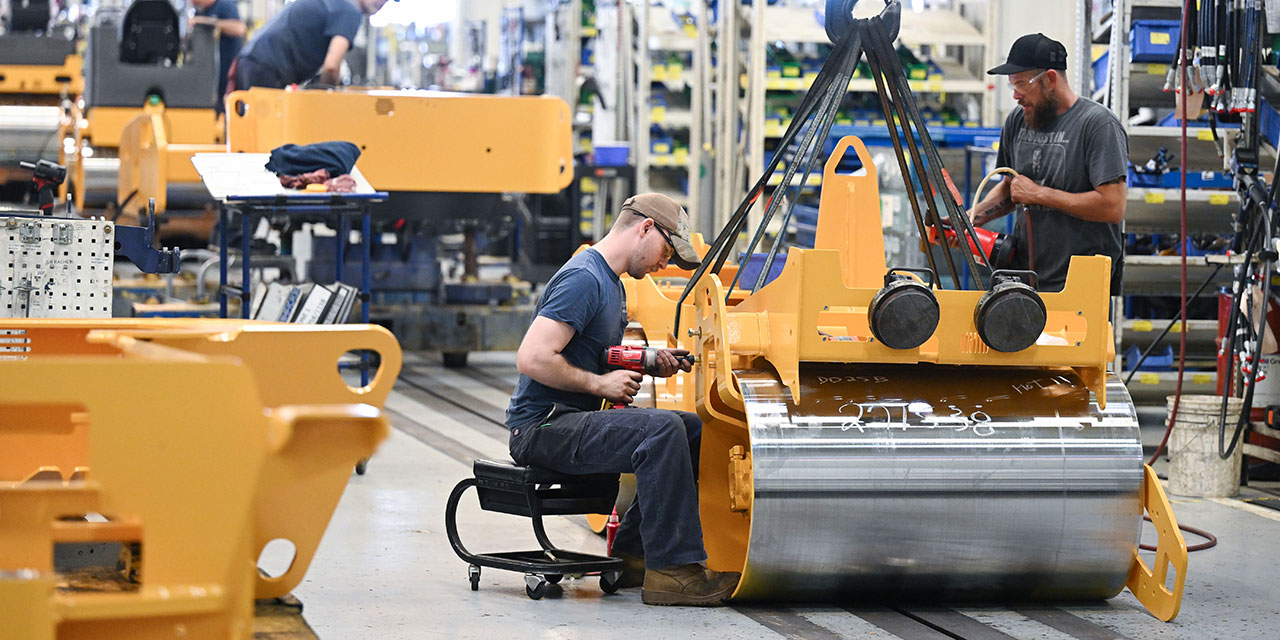
Three years ago, whenever I met ambitious, well-connected professionals in the prime of their careers, they were all working on investment schemes tied to Green Tech. Today, those same people are talking about reshoring manufacturing.
It’s a reminder of how quickly human and financial capital can pivot in response to the promise of government largesse. The race for green and reshoring dollars illustrates a familiar pattern: subsidies often end up enriching a well-connected few, rather than the broader public they’re meant to help.
Finally, a reason to check your email.
Sign up for our free newsletter today.
Both Donald Trump and Joe Biden have pursued sweeping plans to reshape the American economy. Biden aimed to ignite a manufacturing renaissance powered by green technology; Trump’s vision is to bring factories back to American soil.
Biden’s green agenda stemmed from good intentions: to make the economy more sustainable, less environmentally damaging, and more resilient to climate change. His signature Inflation Reduction Act funneled billions into tax credits for renewable energy and low-emission lifestyles, laid plans for a national EV charging network, and imposed tariffs as high as 100 percent on Chinese electric vehicles.
But the agenda became bloated and ignored any cost-benefit analysis, and it must be judged as ineffective. The domestic capacity to make solar panels has grown significantly, but American-made panels are still far pricier than non-American alternatives, and still require critical inputs from other countries. Only 69 charging stations have been built, automakers are losing money on EVs, and demand has not held up for the cars. Overall manufacturing employment, meantime, has barely increased.
Left-leaning advocates blame the political process and special-interest groups for undermining Biden’s best intentions. But such outcomes are typical of industrial policy—one reason it has such a poor track record in most countries. Biden’s approach largely redirected resources toward unproductive uses, while fueling inflation and contributing to higher interest rates, which, in turn, crowded out more market-driven solutions.
Now the Trump administration is trying something similar. The aim isn’t greening the economy, though; it’s to reshore manufacturing. That rationale, too, has merit: America is overly dependent on foreign goods—especially from China—for critical pharmaceutical and defense-technology inputs.
But reducing reliance on Beijing doesn’t necessarily mean making everything at home. It could just as well mean expanding trade with other trusted countries. Instead, the Trump administration has extended its reshoring push to include manufacturing not only from China, but also from allies like Europe, Canada, and Mexico.
From an economic standpoint, there’s little difference between the tariffs favored by Trump and the subsidies embraced by Biden: both shape production and impose real costs. Industries protected from competition through tariffs are, in effect, receiving subsidies—paid for largely by American consumers.
Just as with Biden’s agenda, the risk is more boondoggles. While Trump’s industrial policy may create some manufacturing jobs, the American economy’s shift away from domestic production was structural, the result of long-running changes in our labor force and technology that neither tariffs nor subsidies can reverse. Foreign countries have a comparative advantage when it came to making certain goods, like semi-conductors and iPhones, while the U.S. economy has an edge in many services. That’s why jobs moved overseas.
Whatever our hopes, protectionism is a poor tool for reshaping the skills and composition of the U.S. labor force. Consider the 1920 Jones Act, which requires that all vessels transporting goods between U.S. ports be built in America, owned and crewed by U.S. citizens, and registered under the U.S. flag. Intended to protect the domestic shipbuilding industry—especially for national security reasons—the law instead fostered a small, inefficient sector shielded from competition. With little incentive to innovate, U.S. shipbuilding stagnated. A narrow group of firms benefits; everyone else pays the price.
If the goal is to create more quality jobs and make America more resilient, the Trump administration should heed the lessons learned from Biden’s approach. Some reshoring for security reasons in a few areas—like defense tech—can be justified. But a wholesale reshoring agenda could wind up making American industries less competitive and less efficient, while benefiting only the well-connected.
Photo by Matt McClain/The Washington Post via Getty Images
City Journal is a publication of the Manhattan Institute for Policy Research (MI), a leading free-market think tank. Are you interested in supporting the magazine? As a 501(c)(3) nonprofit, donations in support of MI and City Journal are fully tax-deductible as provided by law (EIN #13-2912529).
Source link














